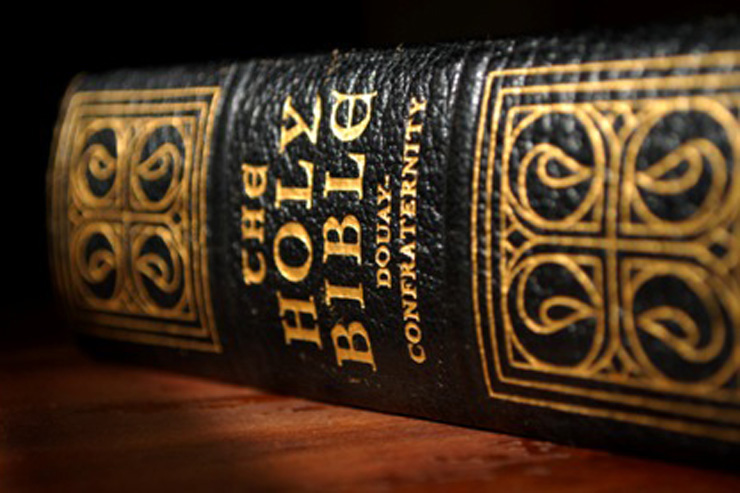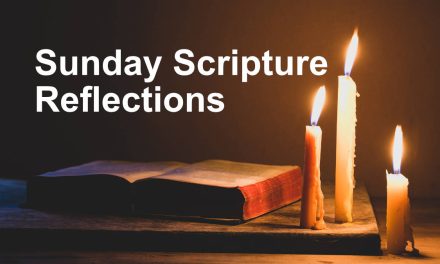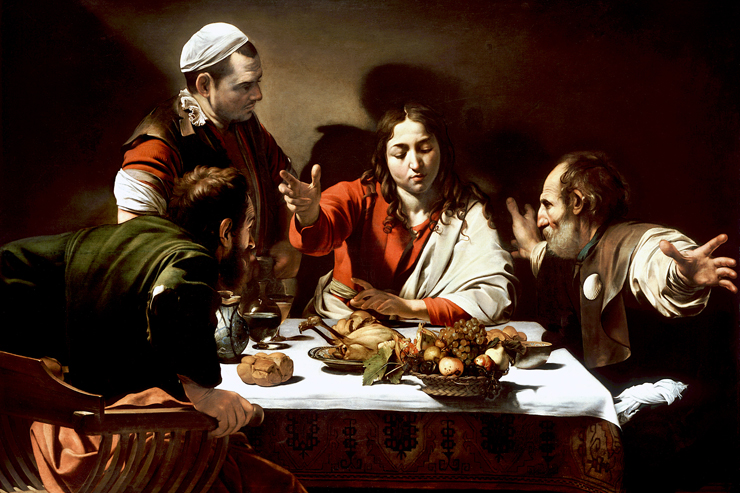“The force be with you.” No, God is far from an impersonal force. The doctrine of the Trinity shows us just how personal and interpersonal, God really is.
This post on the personal and interpersonal mystery of the triune God is offered as a reflection on the readings for the Solemnity of the Most Holy Trinity, (Year B) — Deuteronomy 4:32-34, 39-40; Psalms 33:4-5, 6, 9, 18-19, 20, ; Romans 8:14-17; Matthew 28:16-20.
The Trinity has always been a difficult doctrine to swallow. First of all, there is this statement from Sunday’s first reading: “The Lord is God in the heavens above and on the earth below, and there is no other.” This was tough for anyone to accept in the days of the Old Testament when people generally honored sky gods, sun gods, water gods, and specialized gods for about every aspect of human life and every region of human habitation. C’mon, there’s only one God?
We might smirk at the ancients, but we have a very similar problem today. It flows from a philosophy called relativism, but winds up with much the same result. You might believe in Jesus, I believe in Buddha, and our neighbor reveres Allah. Your God is true for you, his is for him, mine for me.
Yet the Bible insists, and the Catholic Church along with it, that there is only one God. And that God is not an “it”, some impersonal “force”, but a “Him,” more truly personal than any of us. In fact He is so personal, that from all eternity He is interpersonal–three persons in perfect union of will and activity, so perfect that they are truly One God, not three. Everything in our experience is finite, meaning that it has limits, including the degree of unity that we can have in our relationships. God’s inner unity, the unity of Father, Son, and Holy Spirit, is unlimited and perfect, love pouring itself, one person into another, ceaselessly, at every moment, for ever and ever amen.
The author of the DaVinci Code is not the first to allege that the Church made up this whole Trinity thing. Various sects in the first few centuries plus the Muslims made this accusation. Then the Jehovah’s Witnesses rehashed it in the 19th century, blaming the Roman Emperor Constantine.
Bur really, everything but the term “Trinity” is right there in the Scriptures. In Sunday’s reading from Romans 8, Paul speaks of the Father, Christ Jesus, and the Holy Spirit all in the same few verses, distinct and yet one. In John’s Gospel, Jesus dialogues with his Father in prayer, showing their distinction, yet boldly proclaims “The Father and I are One.” Jesus, in this Sunday’s Gospel, sends forth the disciples to baptize people in the Name of the Father, and of the Son, and of the Holy Spirit.” Note he does not say in the “names” but in the “name”, showing the unity of these persons. And baptizing in this triune name demonstrates their equality as well, for what sense would it make to baptize in the name of three, one of whom is God and the other two of whom are not?
But this feast of the Most Holy Trinity does not just celebrate the nature, grandeur, and beauty of God. It also recalls that we have been baptized or plunged into this energizing reality of divine love. God has drawn us in to share in the dynamism of his own inner life. He has not called us servants, but friends. It is not just the Holy Spirit who indwells our souls, but the entire Trinity who has made each of us a dwelling place. The three divine persons are loving each of us in us and want to love others through us.
Some charge that we call this doctrine a mystery because we want to cover up how illogical and preposterous it is. No, it is a mystery because it exceeds our powers of imagination and comprehension. But shouldn’t we expect the inner nature of God to be greater than our finite minds? Any reality that our minds can master is by definition inferior to our minds. The Supreme Being by definition has to be greater than our minds.
Fabrication? Impossible. Human minds cook up things that other human beings are likely to buy. Three gods? People could handle that. How about a hierarchy of one supreme God with two assistant demi-gods? That would work. Three equal but distinct persons in one divine being strains the brain too much to have been concocted by a bunch of theologians or politicians.
The readings during Mass for Pentecost Sunday, Mass During the Day (Year ABC) are: Acts 2:1-11; Psalms 104:1, 24, 29-30, 31, 34; First Corinthians 12:3-7, 12-13; John 20:19-23.
Please share this article on Facebook and other social media below.

Please help us continue our mission!
We welcome both one-time and monthly donations. A monthly subscriber giving just $10 a month will help cover the cost of operating Integrated Catholic Life for one day! Please help us bring enriching and inspiring Catholic content to readers around the world by giving today.
Thank you and may God Bless you for supporting the work of Integrated Catholic Life! Integrated Catholic Life Inc is a nonprofit public charity under Internal Revenue Code Section 501(c)(3). These contributions are tax-deductible as provided under U.S. tax laws.














